



 Sample sound files for Modern Irish
Sample sound files for Modern Irish
In this section you can view maps of the main Gaeltachtaí (Irish-speaking districts) of present-day Ireland and listen to representative speakers. These areas are to be found along the western seaboard and on the south coast. They represent the remaining pockets of historically continuous districts where Irish is used as an everyday language. As a language of choice in domestic and public settings it is spoken by about 30,000, perhaps 40,000 individuals at the very most. The figures published by the Irish government, which suggest anything up to a million Irish speakers, are a complete exaggeration. It is true that most people have a knowledge of Irish from their schooldays (Irish is compulsory in primary and secondary schools). Competence here varies enormously depending on the quality of the school instruction and possibly exposure to native-speaker Irish. Such people constitute the vast majority of Irish and do not use the language as a means of everyday communication, indeed would not be able to do so, if it were required of them. However, one should also mention that there are many individuals living outside the Gaeltachtaí who use the language from personal conviction and try to foster a high level of fluency within their families.
The six sound files to be found here represent a small extract of recordings from more than 200 speakers collected by the present author in the project Samples of Spoken Irish, a database of recordings which provided the basis for both The Dialects of Irish (Hickey 2011) and The Sound Structure of Modern Irish (Hickey 2014), see section References for Irish. Each sample here is from the beginning of a recording in which the particular speaker read out a set of sentences containing tokens of the lexical sets devised for the phonology of modern Irish.
Click on one the following links to jump to a section:
North-West Donegal
South-West Donegal
Conamara, Co. Galway
Dingle Peninsula, Co. Kerry
Iveragh Peninsula, Co. Kerry
Ring, Co. Waterford
Sample sentences
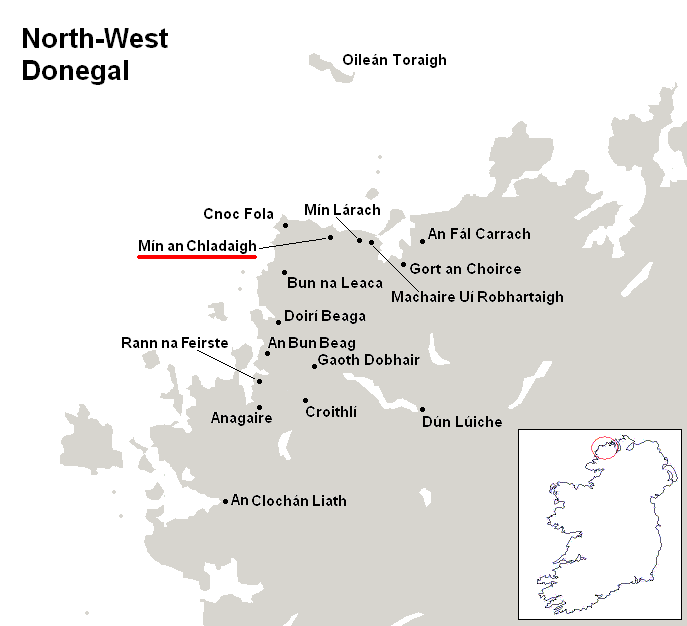
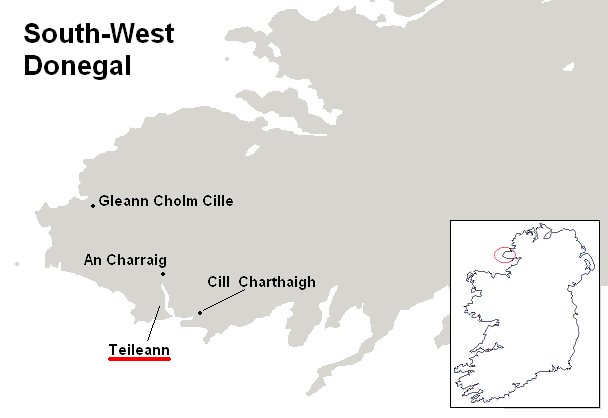
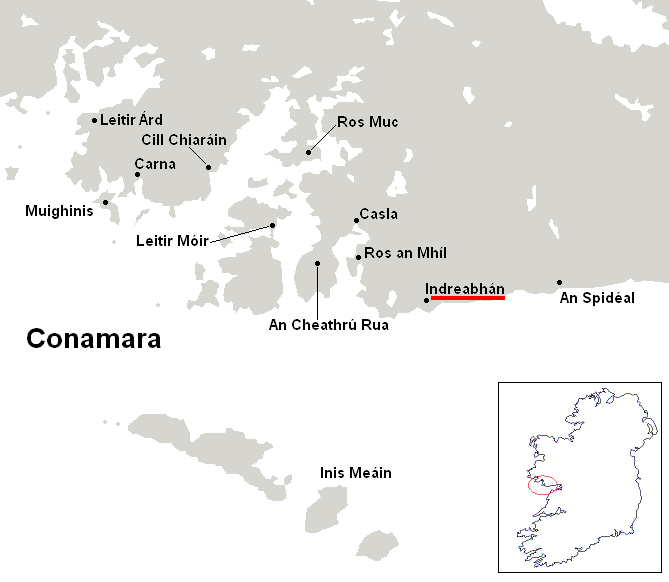
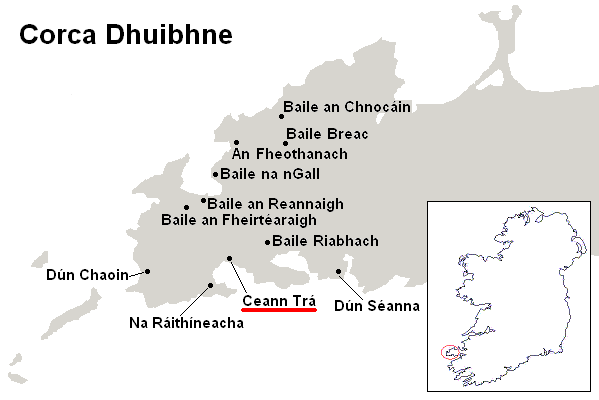
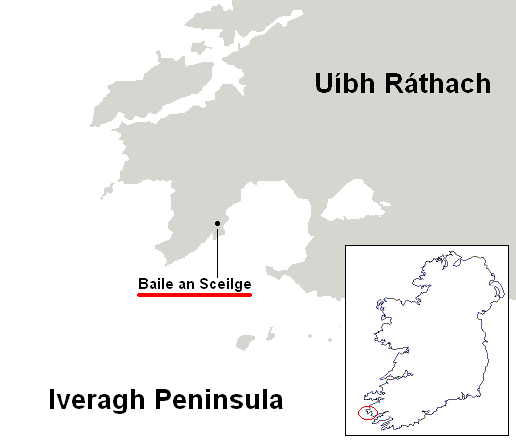
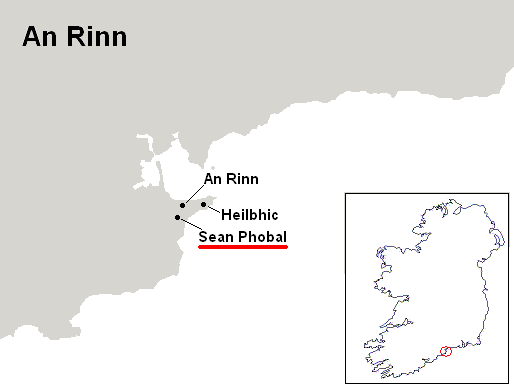
| /p/ | /pʲ/ |
| Bhí sé ag iarraidh POST a fháil. | Tá siad amuigh ag PIOCADH úllaí. |
| ‘He was trying to get a job’ | ‘They are out picking apples’ |
| /b/ | /bʲ/ |
| D’ól siad BUIDÉAL fíona. | Tá a sean-athair BEO fós. |
| ‘They drank a bottle of wine’ | ‘Her grandfather is still alive’ |
| /f/ | /fʲ/ |
| Ní fhaca sé le FADA iad. | Níor tháinig siad FIÚ amháin ar maidin. |
| ‘He didn’t see them for a long time’ | ‘They didn’t even come in the morning’ |
| /v/ | /vʲ/ |
| Níor BHOG sé as an áit. | BHÍ sí níos boichte ná a comharsa. |
| ‘He didn’t move from the place’ | ‘She was poorer than her neighbour’ |
| /t/ | /tʲ/ |
| TÓG go deas bog é. | Tá siad le TEACH a thógáil. |
| ‘Take it easy’ | ‘They are going to build a house’ |
| /d/ | /dʲ/ |
| Carr DUBH atá aici. | Ba mhaith liom DEOCH a bheith agam anois. |
| ‘She has a black car’ | ‘I would like a drink now’ |
| /s/ | /sʲ/ |
| Tá SÚIL agam go bhfuil sé réidh. | Téann muid amach ag SIÚL gach maidin. |
| ‘I hope that he is ready’ | ‘We go out walking every morning’ |
| /k/ | /kʲ/ |
| CÁ bhfuil do mháthair ina cónaí? | CEART go leor, a dúirt an múinteoir. |
| ‘Where does your mother live?’ | ‘Right so, said the teacher’ |
| /g/ | /gʲ/ |
| Chuaigh GACH duine thar sáile. | Ná GEARR an féar fós. |
| ‘Everyone went abroad’ | ‘Don’t cut the grass yet’ |
| /x/ | /xʲ/ |
| Tá a CHARR briste. | Bhí an chéad CHEANN níos deacra. |
| ‘His car is broken’ | ‘The first one was more difficult’ |
| /ɣ/ | /ɣʲ/ |
| Tá DHÁ ghairdín leis an teach. | Bhí pian aige ina GHIALL. |
| ‘There are two gardens with the house’ | ‘He had a pain in his jaw.’ |